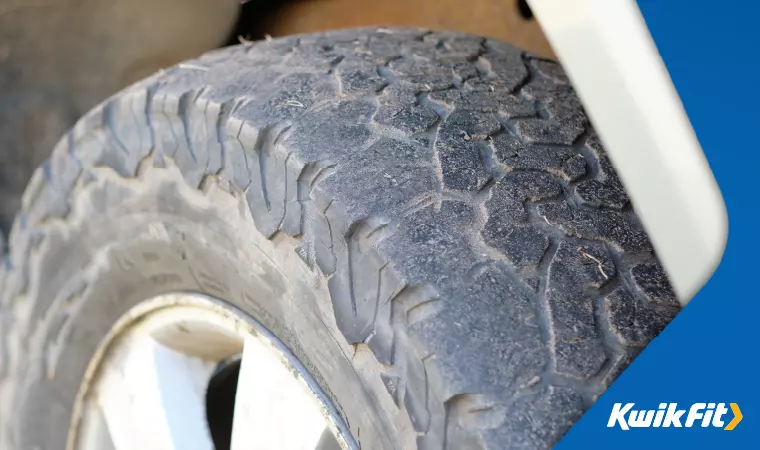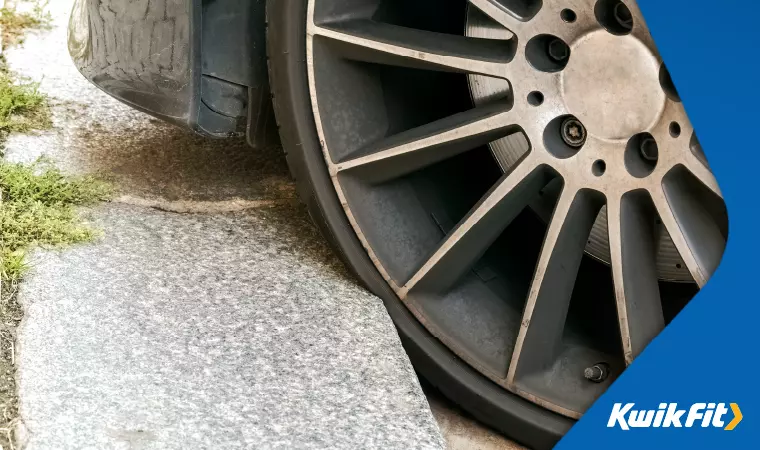7 Simple Tips to Keep Your Tyres in Good Condition
Jack Dreyer | Wednesday 10th May 2023 4:15pm

Tyres are one of - if not the - most important parts of a car. Unfortunately, many drivers fail to look after their tyres properly, which can have serious consequences. Not only can poor tyre maintenance compromise the performance of your vehicle and result in costly repairs, but it could also end up putting you and others at risk of a road accident.
If you want to keep your vehicle safe and roadworthy for longer, itís crucial to ensure that your tyres are well maintained at all times. Here are a few simple steps you should take to keep your tyres in tip top condition.
1. Check the pressure regularly
Tyre pressure can have a significant impact on your carís steering, handling, braking and mileage. If tyres are under or over inflated, it can increase fuel consumption and make them more susceptible to wear and tear. At worst, having the wrong tyre pressure can result in a blowout, which can cause you to lose control of your car.
To avoid putting yourself and any passengers onboard in danger or having to call for breakdown assistance, itís important to make sure that you check your tyre pressure at least every month, including the spare. You should also check the pressure before long journeys or if your car is carrying a heavier load than usual.
The pressure can be checked at your local petrol station or with your own pressure gauge and must be done when the tyres are cold to achieve an accurate reading. The ownerís manual should include recommendations for the optimum tyre pressure for your vehicle if you are unsure. Itís also worth bearing in mind that the pressure number marked on the tyres is the absolute maximum the tyre can take and should not be used as an indicator for daily use.
2. Check for damage and unusual wear and tear
Itís also important for drivers to do a physical check of the tyres and look out for any signs of unusual wear or damage. This can include cuts, bulges, or any objects that have punctured the tyre. If you notice any of these problems, you will need to get them checked by a professional mechanic and repaired if necessary. In some cases, the tyre will need to be replaced altogether with a new one.
If you get a puncture while driving, replace it with the spare if you can until you make it to the nearest garage to be inspected. Bear in mind that spare tyres are designed only for temporary use and should be swapped with a regular one as soon as possible.
Letting your tyres become too dirty can mean that any potential issues like bulges or nicks will be more difficult to spot. It follows, then, that keeping your carís tyres, air valves, and caps generally free of dirt, grease, and debris will help you keep an eye on their condition. If you do notice objects like glass or stone in your tyres, remove them if you can ó otherwise, they could cause a puncture in time.

3. Make sure there is enough tread
Tyre treads have a direct impact not only on the performance of your car, but also its overall safety, especially in poor weather conditions. The legal minimum tread depth is 1.6mm, so itís important to make sure that it does not go below this limit. If the tread is at or below the minimum depth, your tyres will need to be replaced straight away.
Remember, driving a car with tyres below this limit is not only illegal, but also extremely dangerous and will cause your car to fail its MOT test. Having the correct depth is essential to ensuring good control and maximising the safety of your vehicle.
4. Donít overload your car
Overloading your car can be more hazardous than you may think. A vehicle carrying a lot of weight can compromise the handling and cause excessive wear on the tyres due to excessive heat. This could cause a tyre explosion and put you at danger of having a road accident.
Luckily, most tyres now include a label which will have the tyre load index marked on it. Take care not to exceed the recommended amount. You may also be able to find out how much weight your car can safely handle on the placard on the door frame.
5. Keep your wheels aligned
Having your wheels out of alignment can also create problems for your tyres. Incorrectly aligned tyres can result in uneven wear, which can weaken them and make them more prone to damage. It can also reduce the driverís control of the car and increase fuel consumption.
When you are having your vehicle looked over or having new tyres put on at a garage, make sure the alignment is checked and adjusted if needs be.
6. Be mindful when mounting the kerb
Whether youíre pulling up to park on a busy street or youíre trying to get around an obstacle in the road, sometimes mounting the kerb is unavoidable. However, itís important to be mindful when youíre manoeuvring your car in this way - especially if you want to keep your tyres in tip top condition. Mounting the kerb can cause the tyreís sidewall to become pinched between the kerb and the wheel, causing them to weaken and potentially resulting in a tyre blow-out.
Ideally, you should avoid mounting the kerb altogether, but if you have to, make sure youíre careful in your approach. Climb the kerb slowly at an acute angle and ensure you donít scrape up the side of the pavement to avoid damaging your tyres.

7. Maintain good driving habits
As well as basic maintenance, itís also important that you practice good driving habits to keep your tyres in top condition. Excessive braking or acceleration while driving, or constantly stopping and starting in traffic can have a detrimental effect on your tyres and cause them to wear more quickly.
With that in mind, try to drive as smoothly and consistently as possible and avoid excessive speeds. You should also try to avoid any uneven road surfaces and hazards such as potholes and take care to slow down for speed bumps to prevent the wheels from being knocked out of alignment.
Of course, these are just a few ways in which you can make sure that your tyres are in good condition, but they should give you some ideas for how you can improve the performance, comfort, and safety of your vehicle.
Be sure to choose the right tyres in the first place and take good care of them; regular visual inspections and maintenance will go a long way to keeping them up to scratch!
For more information or advice on tyre maintenance, donít hesitate to get in touch with our experts at your local Kwik Fit today.
Any facts, figures and prices shown in our blog articles are correct at time of publication.
Featured Articles
Is it Illegal to Drive With One Headlight?
Saturday 19th July 2025
Wondering if itís illegal to drive with one headlight? Learn about the safety risks and penalties of illegal blown bulbs and why you should fix them promptly.
Air Con in EVs & Hybrids: Experts Answer Your Questions
Monday 30th June 2025
Does air con drain EV batteries? Can you use the air con while charging an electric car? Find out the answers to these questions & more from Kwik Fitís experts.
Why Is Your Car Making a Noise? Fixes & Tips
Friday 13th June 2025
When your car starts making unexpected noises, it can certainly be quite disconcerting; it may be nothing to worry about, but hereís what you need to know.









